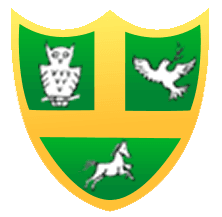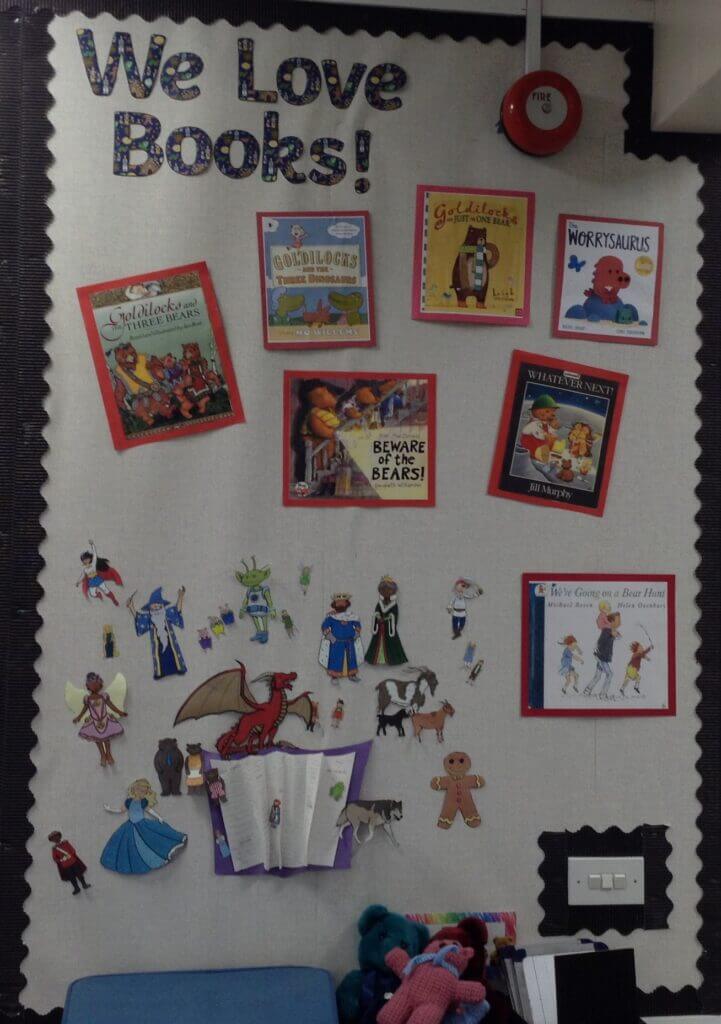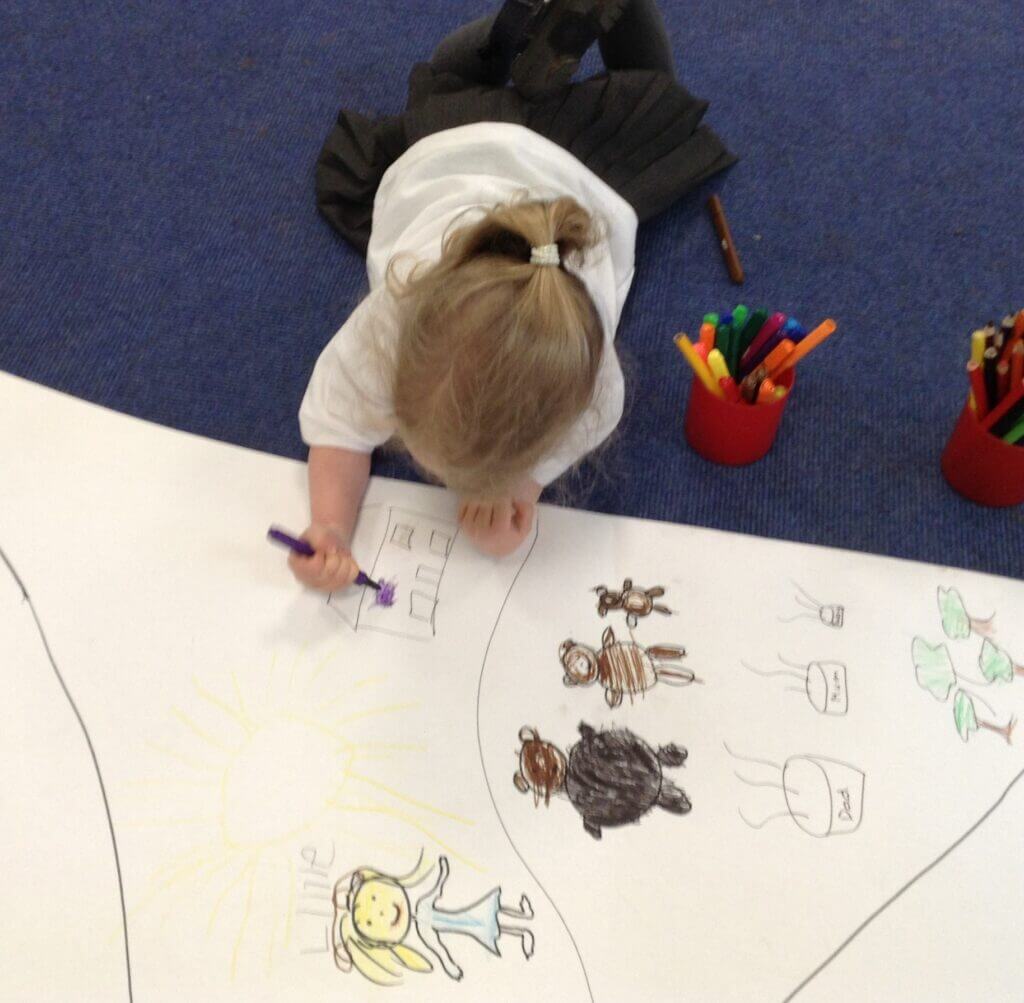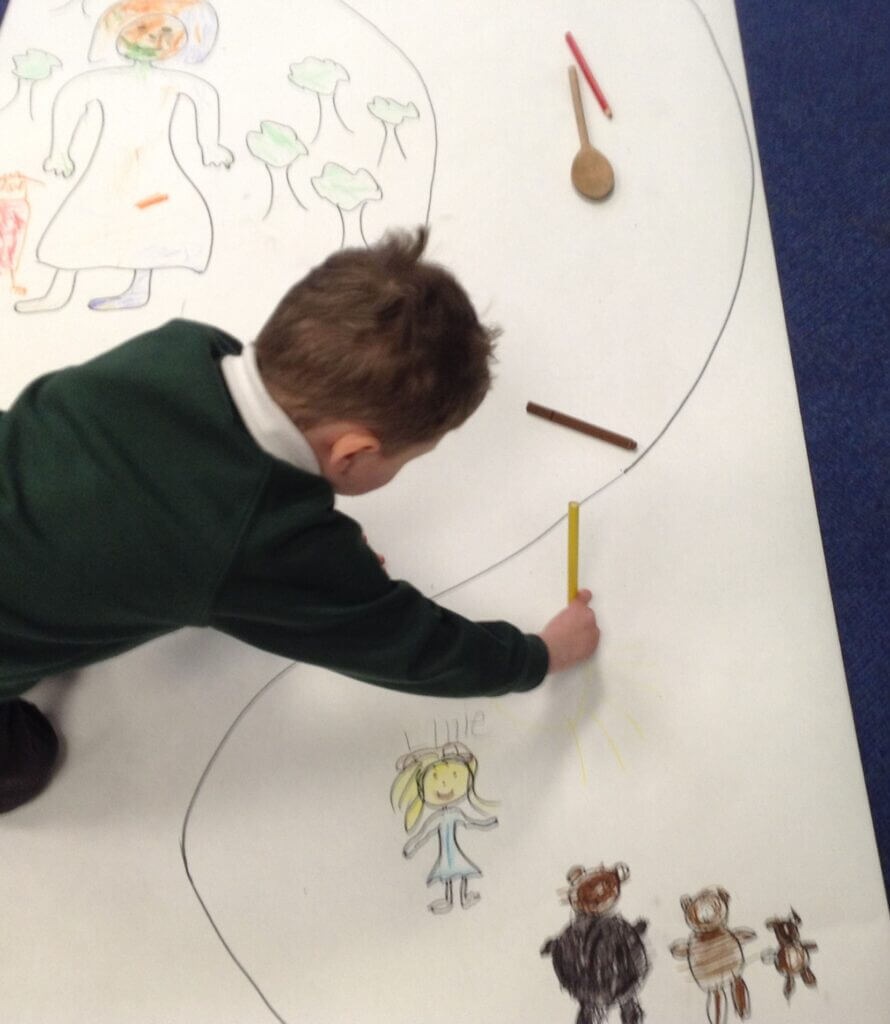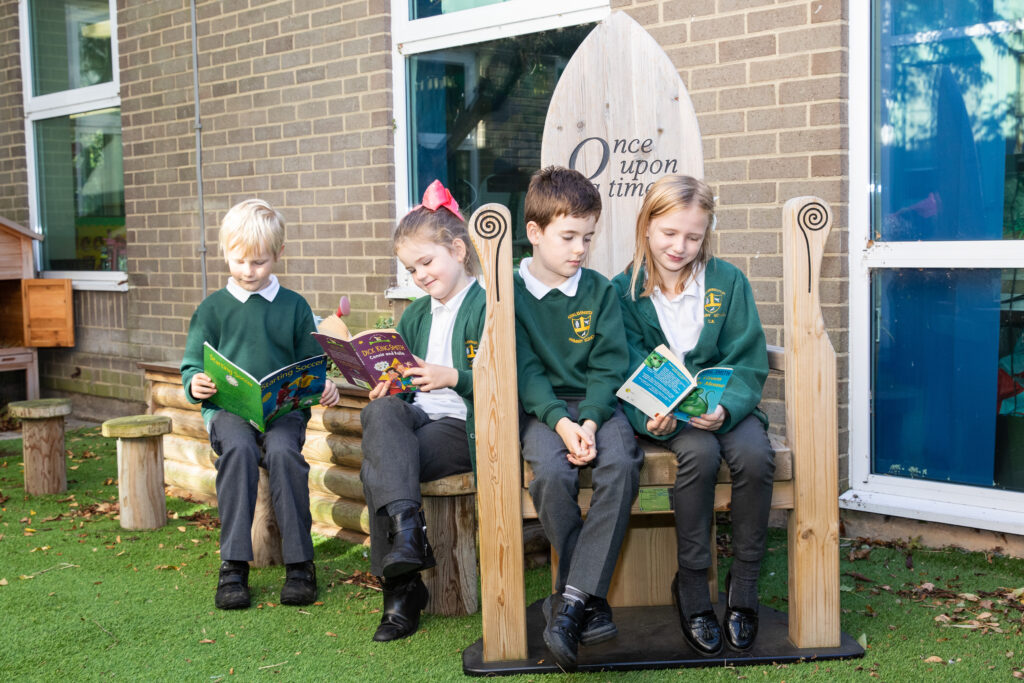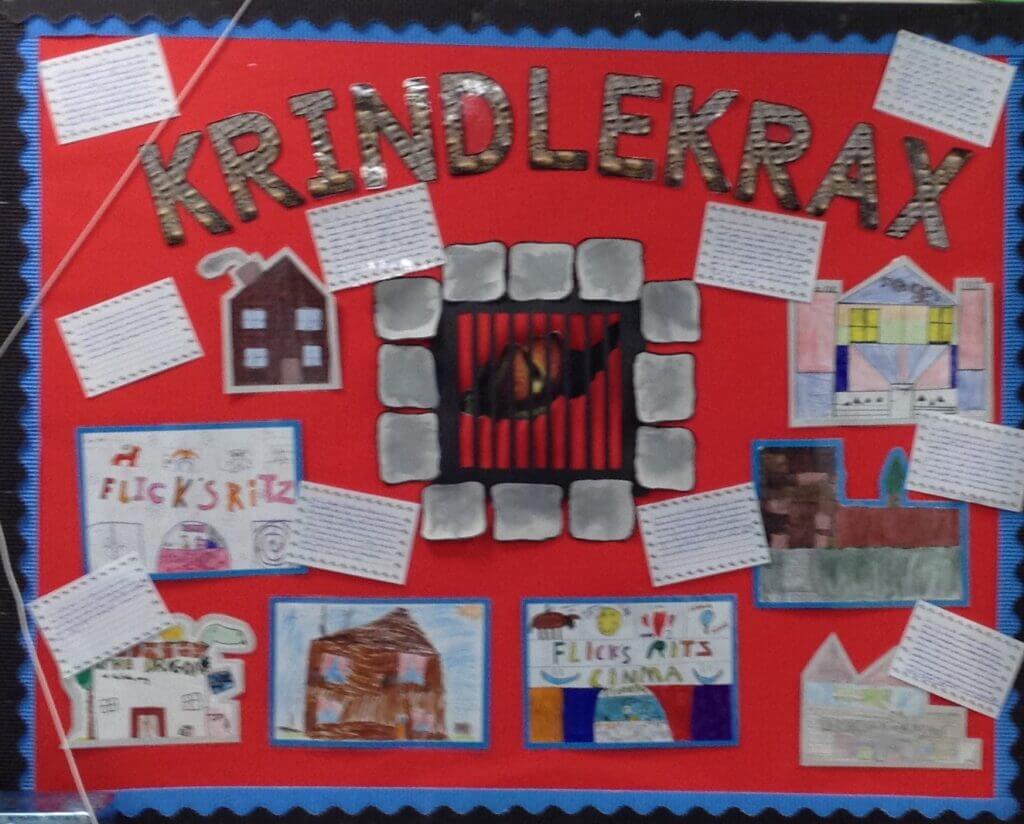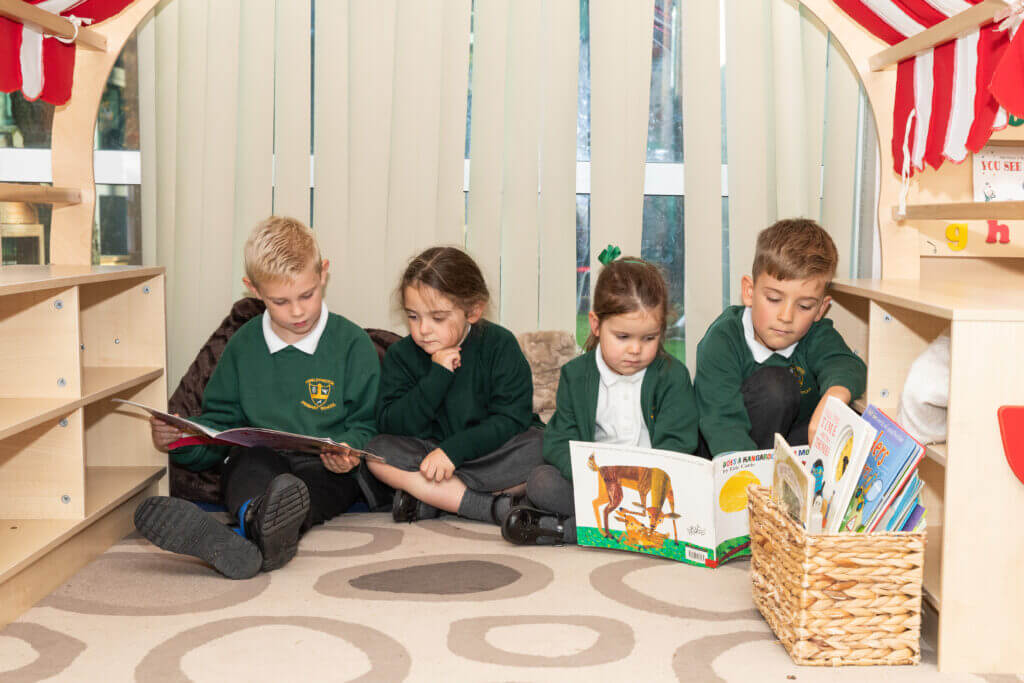Reading and Phonics
Article 28: Every child has the right to an education
Little Wandle Letters and Sounds Phonics Programme
At Kirklevington Primary School, we use Little Wandle Letters and Sounds phonics programme. This is a validated programme by the Department of Education and is a complete synthetic phonics programme. In Reception and Key stage one, we use a reading scheme called ‘Collins Big Cat phonics’ which has fully decodable reading books that support the Little Wandle Phonics scheme to provide a consistent and effective approach to teaching phonics and early reading. We are dedicated to ensuring that each and every one of our children learn to read with accuracy and confidence.
Across their time at Kirklevington, the children learn the 44 common sounds in the English language and how to sound-blend words for reading (decoding) at the same time as developing handwriting skills and spelling (encoding). Phonics is taught frequently and as the children’s confidence in decoding develops they are taught, through teacher modelling, to compose ideas for their own writing. We have high expectations for our children and it is our aim that all children can decode confidently by the time they leave KS1.
Each class has a designated reading area and the children have the pleasure of reading exciting storybooks perfectly matched to their level – so that they have early success in reading! They are also read to by an adult often, in shared story time, so that a shared love of reading can be created.
Click on the link below to view our reading and phonics policy.
Intent: What we are trying to achieve in our curriculum?
At Kirklevington Primary, we believe that reading is the key for academic success. We value reading as a key life skill and are dedicated to enabling pupils to become lifelong readers who love develop a love of books and enjoyment of reading for pleasure.
We intend for children to:
- to be enthusiastic and motivated readers
- read fluently with a good understanding of the text
- read often for both pleasure and information
- acquire a wide knowledge and vocabulary from a range of genres and text types
Implementation
At Kirklevington, we teach the National Curriculum for Reading in daily guided reading lessons, through our Progamme of Study, which ensures that knowledge and skills are built upon each year. Teachers use a variety of texts and written material for guided reading lessons, these often link to writing genres being studied or other curriculum areas being taught. In EYFS/KS1, we encourage children to read widely for pleasure from an early age and have a wide and varied range of books in school, both fiction and non-fiction, to develop children’s interest and love of books. We use we use a range of different phonics approaches, such as Letters and Sounds to support the teaching of early reading. Phonics teaching takes place daily in Early Years and through Key Stage One. Key words are taught through action words which are sent home on flash cards. We use a wide range of reading schemes, such as Oxford Reading Tree, Songbirds, Rigby Star and Collins.
In Key Stages 1 and 2, each class has a wide and varied range of books, both fiction and non-fiction, often chosen by the children, and we introduce our children to a range of different authors, determined by their reading age range, such as Roald Dahl, Clive King, Frank Cottrell-Boyce and Cressida Cowell to name but a few. These books are supported by our key reading schemes, Floppy Phonics, Project X, Rising Stars and Oxford Reading Tree. When children are accomplished readers, they are encouraged to read a variety of texts independently. The children use the VIPERS (vocabulary, inference, prediction, explain, retrieve and sequence/summarise) reading domains in every reading session. These skills ensure that the children have a holistic approach to reading comprehension and vocabulary. Vipers are displayed in each classroom. Any children not making the expected progress in reading have 1:1 or small group intervention using bespoke intervention programs.
Home-school Reading
At Kirklevington, we have a home-school reading system where children take a book home to read which is at the appropriate level for them. For early readers (usually EYFS) home reading books are usually in the form of ‘share’ books that they can share with an adult and be read to. When they are ready, Reception then take home a reading book organised in phonic phases to match the phonics phase they are working at. Children will only receive books which contain sounds they have been taught during phonic lessons. Moving throughout school children follow ‘book bandings’ to ensure progress is being made.
We ask that children read for at least 15 minutes each day at home. Reading Records are used to record home reading and school staff also record guided reading sessions in this record book. We recognise and value our shared role with you in encouraging your child in reading, not only in the strategies for learning to read but also to develop understanding, give opinions and extract information. Additionally, we have our online reading resource Bug Club where children are assigned books at their individual reading level which they can access online at home. All children have their own unique login.
In the classroom, each class has an accessible ‘Reading Area’, with a selection of books of interest to them and linked to the different topic areas being studied that term, allowing children to apply their reading skills across the curriculum. In guided reading, children read independently, as a group and are read to. We often have a class reading session at the end of the day and we often organise reading between classes, so the children can buddy up and read to each other.
Impact
We believe we provide good opportunities for children to enjoy reading across a range of genres and in many curriculum areas. We believe that all children will develop a love of reading and will be able to succeed in this important life skill. Pupils will have a good knowledge of a range of authors and will be able to comment critically on texts they have read, by the time they leave Kirklevington. We believe that parents and carers will have a good understanding of how they can support reading and home, and contribute regularly to home-school records so that we can work in partnership to ensure good progress and develop our children as life-long readers.
